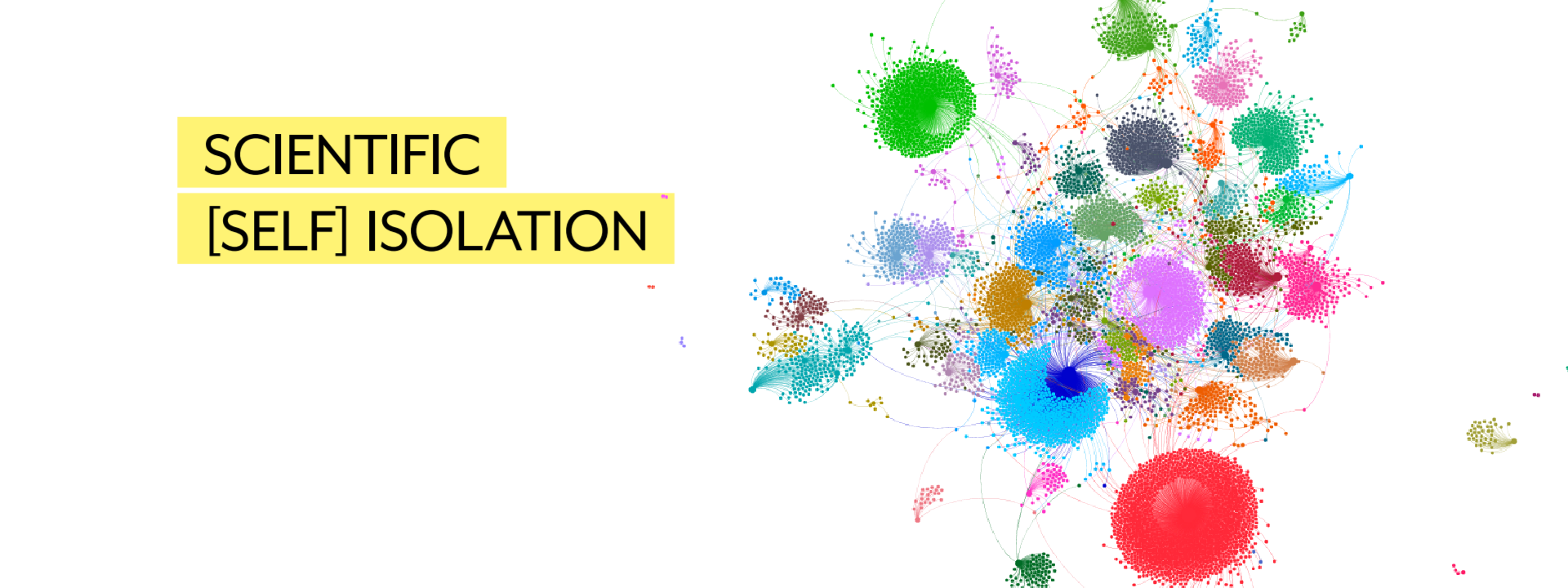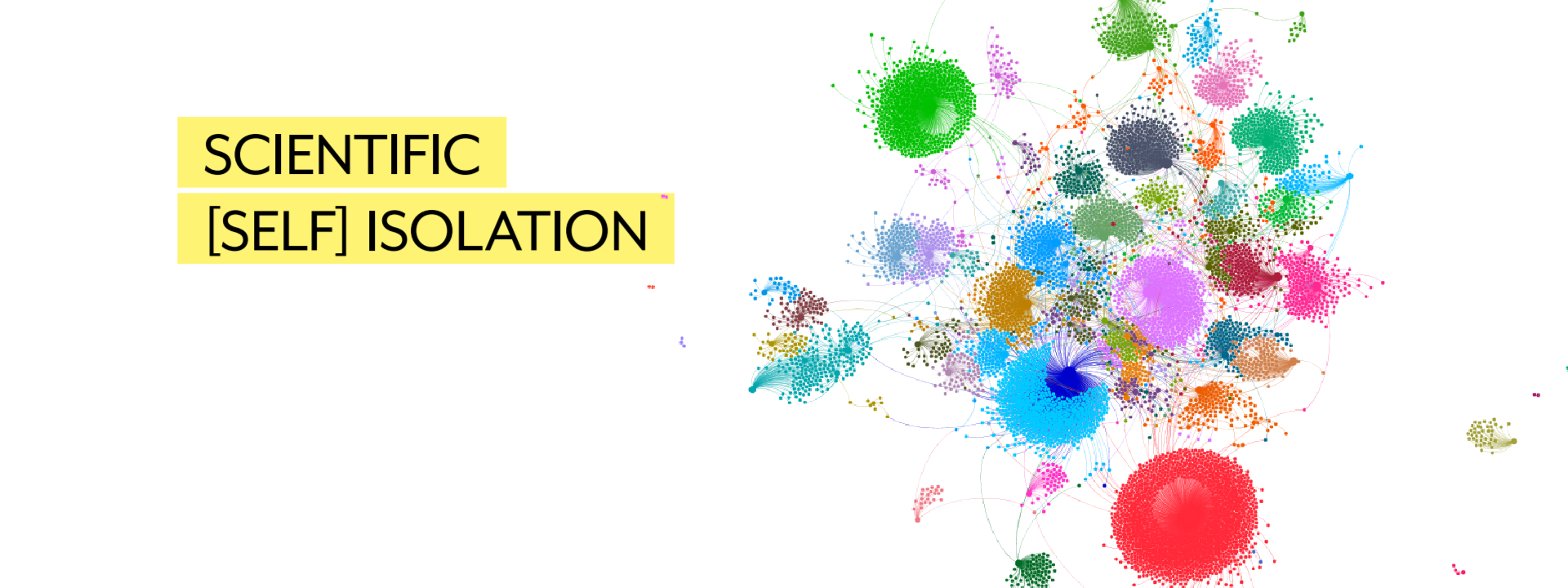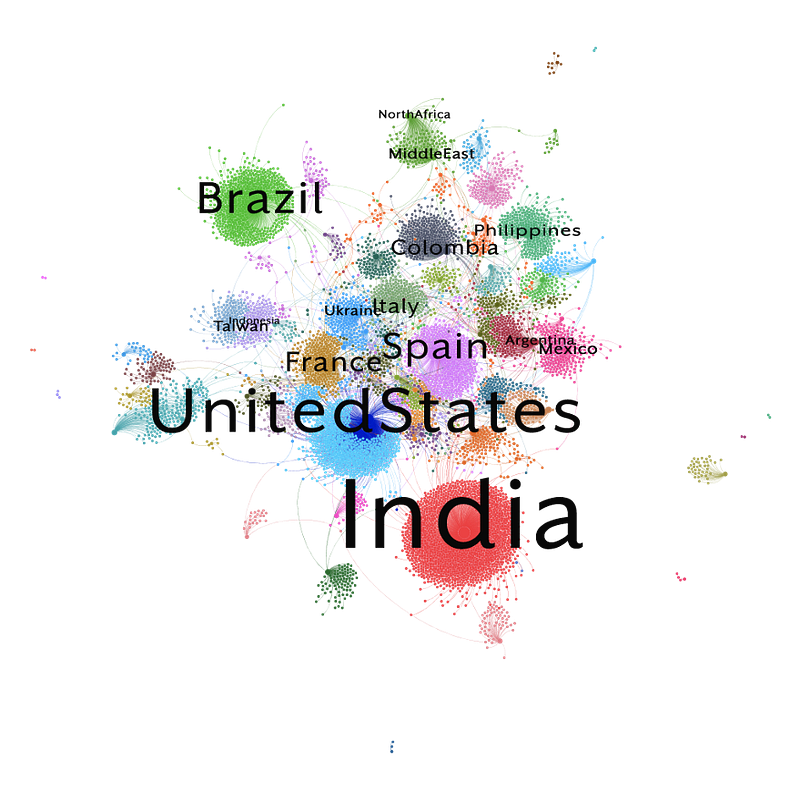
While misinformation about the virus spread globally, Brazil’s disinformation ecosystem remained isolated, shaped by the country’s president

An analysis of 8,600 claims about COVID-19 published around the world since the onset of the pandemic revealed that misleading narratives about the virus followed regional patterns, with similar themes appearing across different countries. Two exceptions were India and Brazil, the latter of which appeared in almost complete isolation from other countries in a study of commonly discussed COVID-19 misinformation narratives.
The conclusion is from the “Scientific [Self]Isolation” report, authored by researchers from the DFRLab and the Brazilian research centers Laut, INCT-DD, and Vero. The researchers analyzed the International Fact-Checking Network’s #CoronaVirusFacts Alliance database, an initiative that gathered over 100 outlets from 69 different countries in a collective effort to counter misleading narratives about the pandemic.
This database contains a collection of narratives that fact-checkers verified in each country, translated to English. Different methodologies were applied to analyze words and expressions used in these claims. The conclusion was that, while misleading claims traveled freely across most countries, two countries –India and Brazil — remained relatively isolated, steeped in their own respective domestic misinformation ecosystems. In the image below, it is possible to see how words and expressions used in Brazil position the country further from others.

Brazil’s isolation reflects the primacy of a particular category of false COVID-19 narratives in the country: claims that some medical drugs, namely chloroquine and hydroxychloroquine, azithromycin, and ivermectin, were effective cures for COVID-19. While some of these drugs were discussed in different countries at various points in the pandemic — Donald Trump, for instance, promoted hydroxychloroquine — in most, these claims faded away as more scientific evidence emerged showing that these drugs were ineffective. In Brazil, however, the debate about these drugs remained salient, boosted by President Jair Bolsonaro and his supporters, who continued to promote the drugs as cures for COVID-19. This indicates that disinformation narratives in Brazil were heavily shaped by the country’s president, his followers, and allies.
The report also finds that, among the five countries with more entries in the database, Brazil is the only one in which the term “governor” appears more often than the title of the head of state, such as a president or prime minister. This suggests that, along with discussions about the effectiveness of various medical drugs mentioned above, disputes between regional and national officials shaped the disinformation debate in Brazil.
The full report can be read here.
Luiza Bandeira is a Research Associate, Latin America, with the Digital Forensic Research Lab.
Follow along for more in-depth analysis from our #DigitalSherlocks.

